TACKLING HEALTH HEAD ON WITH STEVE THOMPSON


TACKLING HEALTH HEAD ON WITH STEVE THOMPSON

CELEBRATING OUR OCCUPATIONAL HEALTH NURSES WE'VE GOT YOUR BACK
Foreword
Copy & Proof
Copy & Curation
Layout & Design
Marketing
Nicole Corr
Alex Goldsmith
Gemma Steel
Jodie Palmer
Annabel Scriven
Mark Rowley
Paula Ayoade
Head DesignerAs we go to press, spring has well and truly sprung, and, befitting of the season, I am delighted to say that the last few months have also seen new beginnings and fresh growth for Medigold Health too, following our successful acquisition of fellow occupational health provider, Health Management, back in March (which you can read more about on page 12).
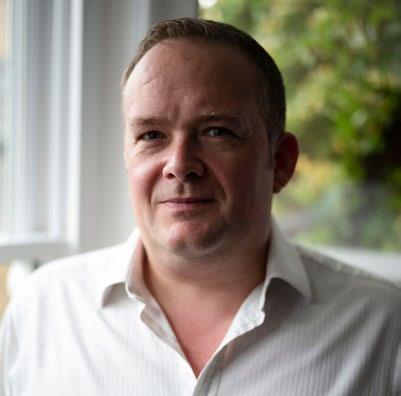
One of the most positive things to come out of the acquisition has been the expansion of our Medigold family, as overnight we were honoured to welcome over 400 new faces, with all their experience and expertise, into the team, some of whom you will see featured throughout this newsletter.
Another huge benefit is that we have been able to integrate a number of exciting new service lines into our service portfolio, meaning we can now bring you even more ways to keep your people in work, safe and well. One such service is our Disability and Health Training & Consultancy, which is the subject of this quarter’s Spotlight feature. Head to page 16 now to learn how these services can help you to better support disability, health and mental wellbeing among your employees and successfully cultivate a truly diverse workforce.
Other highlights in this issue include our celebratory showcase of some of the exceptional nurses we have working across the Medigold Health Group (see page 20), and our Men’s Health Week feature on page 14, where we share the top three things men should be doing right now to boost their health and wellbeing.
Enjoy!
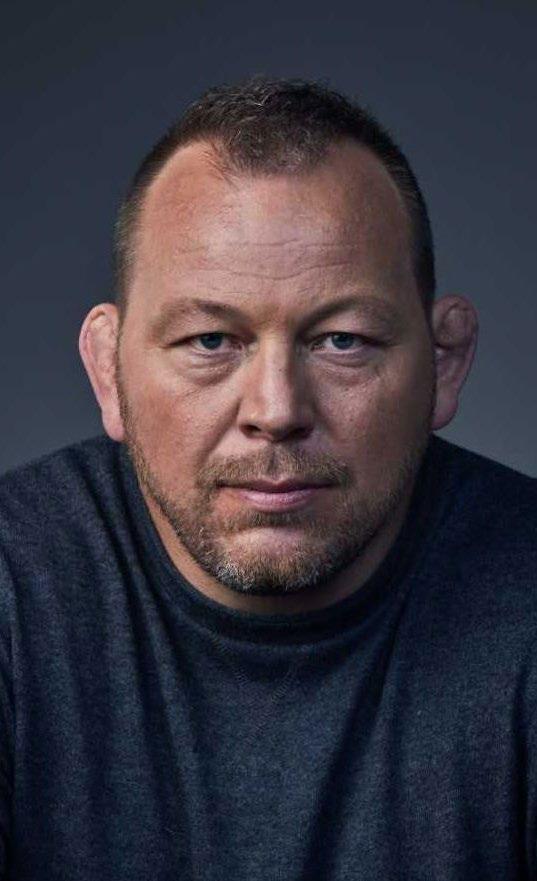
It’s been a jampacked few months here at Medigold Health –here’s just a little snapshot of what we’ve been getting up to across the business this quarter!
MARCH
We acquired HML!
Our exciting acquisition of Health Management Limited saw us welcome over 400 new faces into the Medigold Health Family.
It’s showtime!
MARCH
Medigold Health were honoured to exhibit at Health and Wellbeing @ Work 2023 as Gold Sponsors, chatting to over 600 people on our stand across the two days about all things occupational health and wellbeing.
APRIL
Meanwhile, our Hampton Knight Team hit up The Health & Safety Event (25-27 April) and Railtex show (9-11 May) to exhibit to delegates from every industry sector about how our OH and Drug & Alcohol services can support organisations to keep their employees safe and well at work.
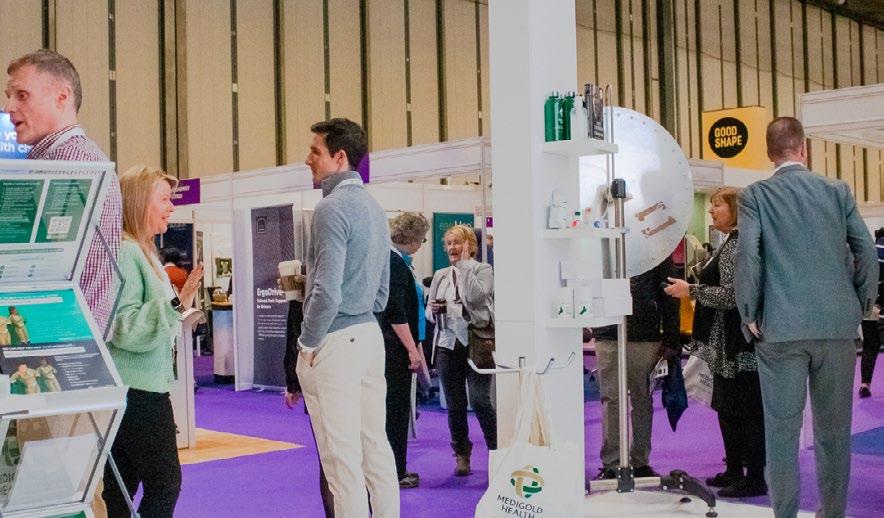
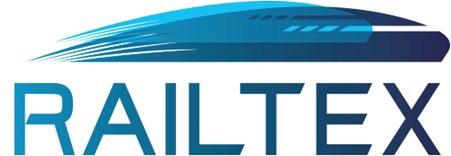
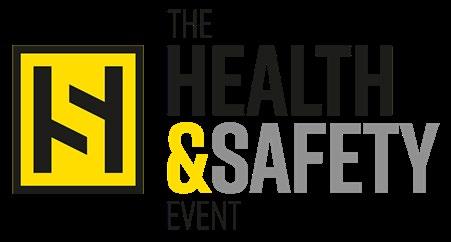
APRIL
Congratulations, Scot and Jo!
In April, Hampton Knight CEO Scot Smith was appointed Chief Growth Officer for the Medigold Health Group, handing over the reins of our drug and alcohol testing division to former Hampton Knight Operations Director Jo Hughes, who is now our new Head of Drug and Alcohol Services.
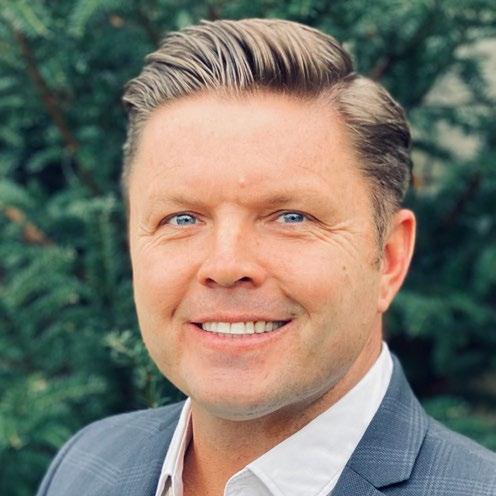
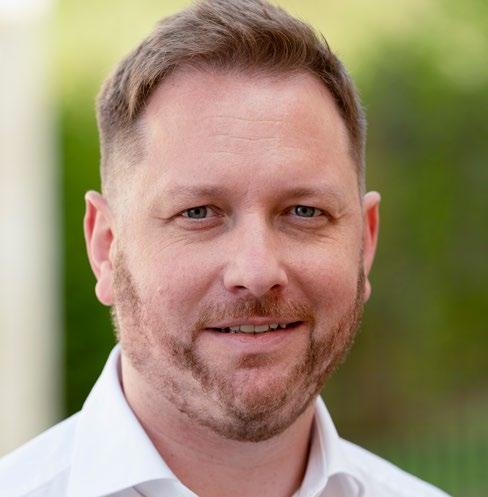
MAY
Congratulations, Karen!
Karen Towers, our former Regional Associate Director of Nursing for the Southwest, was promoted to Associate Director of Clinical Governance on 1 May.
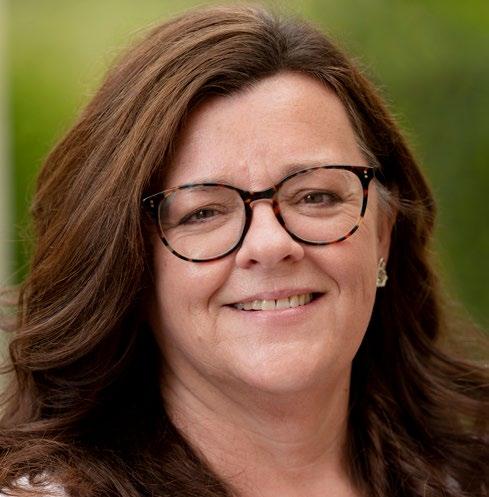
MAY
Congratulations, David and Richard!
In May, our long-serving Commercial Director David Collis was promoted to the role of Chief Commercial Officer, while former Head of Financial Planning & Analysis Richard Hughes, who joined us in March from Health Management, was appointed as our new Financial Controller of the Medigold Health Group.
On 15 May, Medigold Health’s Head of ESG Jane Winter appeared as a guest panellist at the University of Northampton’s Sustainability Summit 2023 to speak about our ESG strategy and our journey so far towards becoming a B Corp.

It was a truly ‘Unforgettable’ evening on 24 May for our Health Awareness Campaigner Steve Thompson at the Sports Book Awards 2023, as his memoir was named both Rugby Book of the Year AND The Sunday Times Overall Sports Book of the Year!
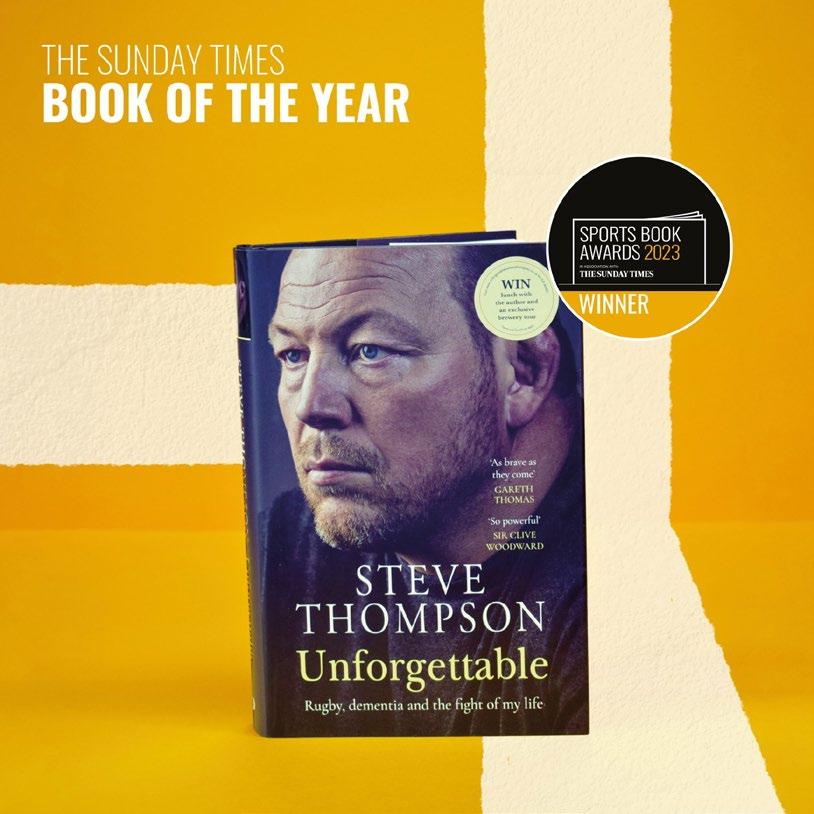
The judges voted unanimously for his book, ‘Unforgettable: Rugby, dementia and the fight of my life’, in his category, calling it an honest, sad but inspiring story, and ultimately chose it as their overall winner because it was so powerful and such a force for change.
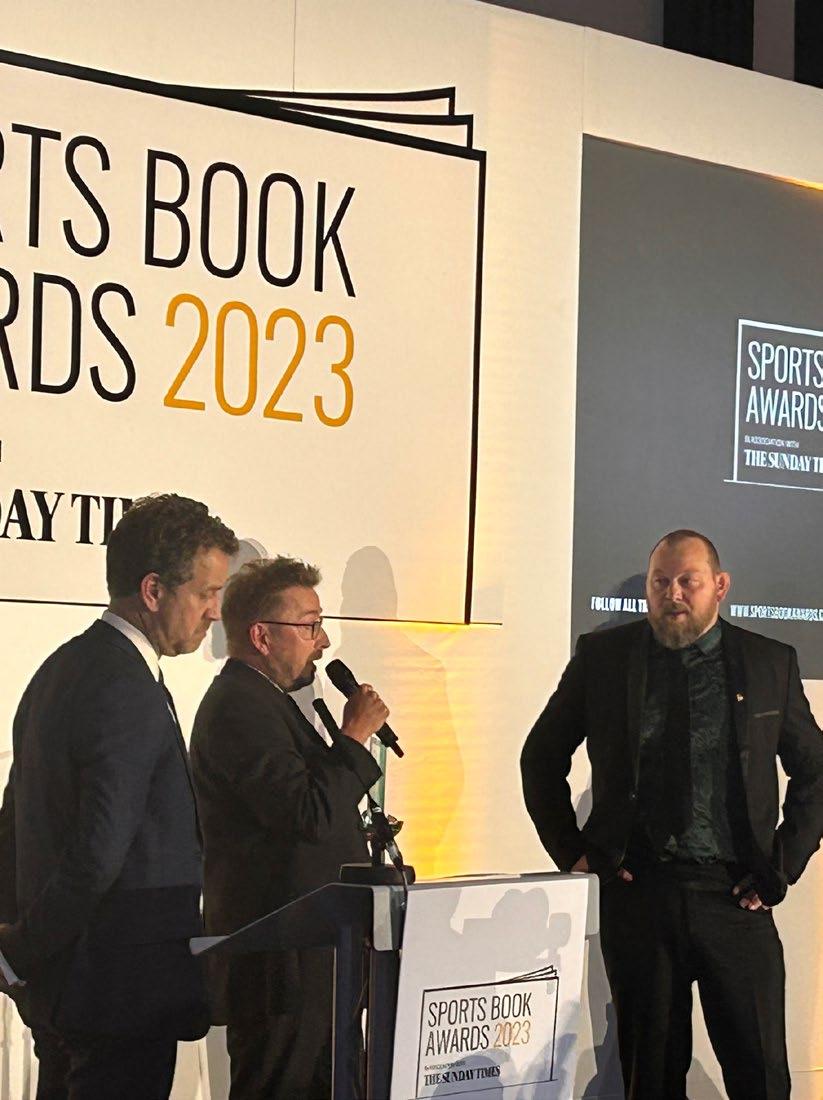

Hi, I’m Steve Thompson, Health Awareness Campaigner for Medigold Health, and this column is where I get to share my thoughts on today’s key health issues and pass on my personal tips for how you can boost your mental health and wellbeing.
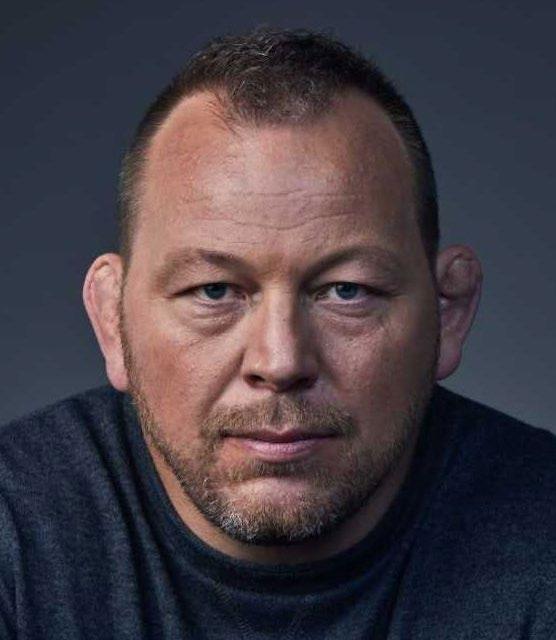
In 2020, I was diagnosed with early onset dementia caused by injuries sustained throughout my previous career as an international rugby player.
Living with a brain injury is hard, not only for those living with the injury but also for the people around them, including family, friends, and colleagues.
Over the last three years, I’ve certainly had my ups and downs, but I’ve also learnt a lot, and I can assure you that by adopting the right attitude and taking better care of your physical and mental health, it is still possible to lead a happy and fulfilling life.
Last week was Action for Brain Injury Awareness Week (15-21 May) and it’s a cause that’s very close to my heart. In honour of that, I’m going to share with you my top three tips for looking after your mental health following a brain injury.
Having sustained my injury through sport, I initially fell out of love with exercise, but after doing lots of research and seeking medical advice from my doctors, I quickly realised that being more active was key to improving my quality of life.
There is such a strong connection between our physical and mental health, and exercising can really help to improve your cognition, your mood and your self-esteem. Working towards your fitness goals can also give you a real sense of achievement, which can help to boost your confidence, and exercising with others can be a great way to socialise and meet people too.
Depending on how your brain injury has affected you, getting back into exercise may seem daunting, but no matter what your ability, there will be an activity to suit you, whether it’s a brisk walk, gardening, dance classes or simple chair-based exercises done at home to your favourite music. Check out the charity Headway for more information about accessible exercise and sport activities in your area.
You also don’t need to spend money on expensive gym memberships or fancy equipment—I started by going out for short cycle rides on a rusty old bike! Find something that fits in with your lifestyle and be realistic with your exercise goals—the main thing is that it gets you moving and that you enjoy it. Accept that you will have ‘off days’ and don’t beat yourself up about it, just pick it back up the next day! Trust me, your mental health, mood, and sleep patterns will thank you for it!
Human connection is so important for our mental health, and I’ve certainly found that to be the case. Like many of us, I used to get preoccupied with work and the digital world on my phone, but since my brain injury, I’ve found that human connection is crucial for my mental wellbeing.
I now make sure that I dedicate more time for my family and a full family Sunday dinner is our thing! I also try to regularly reach out to others to have a chat and a catch-up and check that they are ok.
Building stronger relationships and talking to others about how I’m feeling and my experiences has helped me to process my emotions and feel supported, whilst at the same time supporting others. It has also really helped to improve my own self-esteem and wellbeing – it gives me a feeling of purpose.
Finding time to connect with others, however you feel comfortable doing that, whether it’s joining a local club or group, volunteering with a local charity or even simply arranging a weekly call with a friend, is therefore definitely something I’d recommend.
As an ex-sportsman, I was used to a very hectic schedule and juggling lots of things at once. Since my brain injury, I have found that lifestyle is no longer feasible; I can easily become overwhelmed and anxious if I have a long list of things I need to do, and I’m likely to feel fatigued if I have too much going on day to day.
We think Steve’s tips are really helpful, not only for those living with brain injury, but for everyone who wants to give their mental health a boost.
At first, I found this frustrating, which would only heighten my anxiety. However, I have since learned that if I break things down into chunks, focus on one thing at a time and make sure I plan in dedicated time to rest and recharge, then my life is far more manageable, and I feel calmer and more in control.
Back in March, we made the exciting announcement that Medigold Health were taking the next step in our mission to help keep the UK’s people in work, safe and well by acquiring fellow occupational health provider, Health Management.
The acquisition saw our workforce grow to over 1,100 (including a clinical cohort of almost 600), making us the country’s largest independent provider of workplace health and wellbeing solutions, representing approximately 4.5 million employees (roughly 14% of the national working population).

In recent years, the occupational health market has, like many industries, undergone significant change.
The Covid-19 pandemic brought a fundamental shift in the way people work and how the workplace is defined, and this has forced organisations to look with renewed focus at how they can adapt to better support the safety, health and wellbeing of their employees as they compete to attract and retain the best talent.
Against this backdrop and with demand for occupational health services constantly growing, OH providers are increasingly having to develop new and innovative ways to respond to their clients’ evolving requirements, whilst at the same time facing significant challenges surrounding clinical resourcing and recruitment.
Consolidating our resources and experience is the most effective way for us to stay ahead of our customers’ current and emerging needs and continue delivering essential occupational health services, without compromising on quality.
Alongside Medigold Health, Health Management have been at the forefront of helping some of the nation’s most prestigious organisations to effectively manage the complex issues surrounding workplace health for over 20 years. The prospect of uniting our decades of rich clinical heritage and expertise was too enticing an opportunity to turn down, and the fact that Health Management’s culture and values aligned so strongly with our own convinced us that they would be the perfect fit for us.
With the integration of the HML Team into the Medigold Health Group, we have also been able to enhance our current service offering with a number of exciting new service lines, which are already available to our Medigold customers. Further information on a selection of these services can be found on pages 16—19!

Did you know that globally, men die, on average, six years earlier than women? Or that in the UK, 20% of men (that’s 1 in 5) will die before the age of 65?
Most of these deaths occur due to reasons that are largely preventable, so what’s behind the worrying statistics?
Men and boys typically engage less with their health than women: they are less likely to talk about health issues with their friends or peers, tend to have much lower levels of symptom awareness, are less likely to make use of primary care and preventative services, and often lead unhealthier lifestyles—67% of men are overweight or obese, and they tend to smoke and drink more and at higher-risk levels.
Traditional beliefs around masculinity mean that men are more likely to delay seeking help for health problems, feeling that they should simply ‘man up’ and ‘just get on with things’. This means that they often don’t visit their doctor until a much later stage in an illness, when treatments are likely to be less effective.
• 75% of premature deaths from coronary heart disease are male
• Men have a 37% higher risk of dying from cancer generally, and a 67% higher chance of dying from cancers that affect both men and women
• Middle-aged men are twice as likely to develop diabetes and twice as likely to be undiagnosed
• 4 out of 5 suicides are by men, and suicide is the biggest cause of death in men under 35
Employers can play a crucial role in raising awareness among working-age men of the health issues that disproportionately affect them. Men’s Health Week (13-19 June) is a perfect opportunity to get your male employees to start engaging with their own health.
Here are the top three things that every man should be doing right now to reduce their risk of the biggest killers in men:
The most common types of cancer in men are prostate, bowel, and lung cancer (along with testicular cancer in men between the ages of 15 and 49). Educate yourself on the symptoms, get to know what’s normal for your body, and if you notice a change, don’t wait to go and get checked out by your GP – cancer is much more treatable when caught early.
Making positive lifestyle changes can help to reduce your risk of stroke and heart disease. Move more, drink less, and if you’re a smoker, seek support to quit. It’s also important that you attend any health screening you are offered - from the age of 40, all men are entitled to a free midlife MOT from the NHS, to check your risk factors for developing CVD, as well as other common diseases, such as type 2 diabetes and kidney disease.
If you’re struggling with low mood, depression or anxiety, don’t shrug it off—talk to your family and friends about how you’re feeling. Starting conversations about your own mental health may also encourage others to open up about theirs – listen and take it seriously when they do.
This time in our Spotlight feature, we’re introducing our Disability and Health Training and Consultancy Services, brought to you by our dedicated team who have recently joined us from Health Management.
Newly available to our Medigold Health customers, these services have been developed to help you successfully cultivate and support a truly diverse workforce, by equipping your teams with the knowledge, practical skills, strategies and confidence they need to be able to support disability, health and mental wellbeing effectively within your workplace.
Our comprehensive range of training programmes provide a safe and open environment for your people to discuss disability, health and mental health, challenge mindsets. and develop the confidence, tools and techniques to promote and engender positive behaviour change.
Designed in line with Training Accreditation Programme (TAP) methodology (the industry recognised standard), all our programmes are skills based and structured to ensure that learning is embedded and that learners are directly engaged in the experience, whether delivered face to face or online.
The programmes are centred around three core areas:
• All colleague- and manager/ HR-targeted programmes on topics including personal resilience, mental wellbeing in the workplace and stress management
» Health & Wellbeing Champion and Ambassador programmes
» Nationally recognised and accredited programmes in Mental Health
First Aid (MHFA) and Suicide First Aid
All colleague- and manager/ HR-targeted awareness training programmes on topics such as:
• Neurodiversity awareness and disability awareness
• Supporting employees with long Covid
• Menopause in the workplace
• Driver health
• Promoting better health
A comprehensive selection of workshops and courses on various aspects of supported employment, including:
• Disability and Health
• Understanding Supported Employment
• Good Practice in Employment Support
• Profiling and Action Planning
• Training in Systematic Instruction
In addition to our full courses, we also offer interactive ‘bitesize’ learning sessions. These can be accessed as standalone sessions or used to compliment learning from our training programmes, alongside a range of supporting resources including pre-recorded webinars, fact sheets and toolkits.
Our consultancy service aims to help you develop a clear strategy on disability, diversity, health and wellbeing and support you to achieve your organisational objectives.
Our assessments provide a great snapshot of your organisation, to help you understand what you are currently doing well and where there is scope for improvement. We will help you to carry out a thorough review of all aspects of your business through a ‘disability lens’, from your general policies and procedures to your recruitment and onboarding processes and development opportunities. This may include running pulse surveys, conducting 1:1 interviews with employees, or organising focus group discussions with disabled colleagues, managers and senior leadership.
Based on the results, we can then support you in designing, building and delivering a bespoke, blended learning programme that’s tailored to the specific challenges and needs within your business.
Our expert team can provide you with advice and practical support to help you achieve Disability Confident accreditation, whichever level of the scheme you are working towards, from offering guidance on collecting required evidence to drawing up action plans and assisting with completing paperwork.
Our training programmes and consultancy services are delivered by a team of accredited, qualified professionals, who have developed their expertise over many years working in mental health, disability support and workplace health services and are able to draw on their ‘lived experience’ to inform and enhance the learning experience they provide.
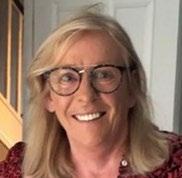

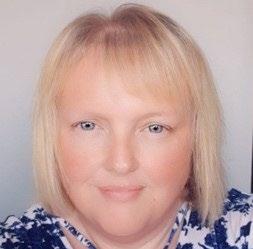

We also run scheduled events that individual delegates can attend. Click here to find out more.



If you would like further information on any of these services, we welcome you to get in touch with the team.
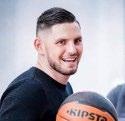
I work in the Placement Team, screening the pre-placement health questionnaires completed by our clients’ newly recruited employees and conducting follow-up telephone assessments, where required, to discuss any existing health concerns they have that might impact them in their new role and identify what support or adjustments they might need.
My morning starts by drafting a plan to allocate and rotate incoming and ongoing work out amongst the team according to the skill mix and experience of the nurses we have working each day. Once this is sent out, we have a brief team meeting to discuss any issues or priorities and then get to work. We receive hundreds of health questionnaires a day, so it’s very fast paced.
As well as screening, I also liaise closely with our Client Services and Relationship Management Teams in dealing with client queries and helping to resolve any issues and am involved in mentoring new members of the team and providing training and support.
I really enjoy my job as it’s so varied. You get to speak to so many different people on a daily basis and I love how much I’m able to learn from them – every day is a school day. Hearing how people have dealt with trauma, difficulty, loss and change in their lives and survived despite this, listening to their insight, and finding out about the self-care and coping strategies that have worked for them is really inspiring. It’s also so rewarding when I speak to someone who has a medical condition to be able to help identify solutions that will help them stay well at work and be successful in their new role, and I always love to hear when employers have been welcoming and supportive.
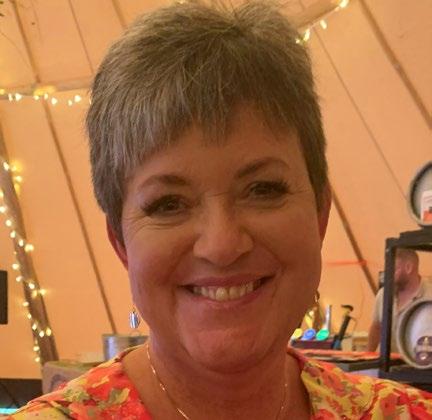
In celebration of International Nurses Day (12 May), we wanted to showcase some of the exceptional nurses that we have working for us here at Medigold Health. Read on to learn more about their nursing journeys, what drew them into occupational health nursing, and why they would recommend a career in nursing to anyone.
After leaving sixth form, I volunteered at my local hospital whilst working full time. I joined the Royal Navy in 1987 and did six weeks’ basic training before moving to Haslar Royal Naval Hospital in Hampshire. We had eight weeks’ induction training (in anatomy & physiology, activities of daily living, care plans, communication skills, pain management, social experiments and surveys, and ward visits), then 13 weeks shift working on our first ward.
Each of the next three years involved a week in nursing school doing the theory for the next module and then several months in a specialty, with a week back in school after each module. I did placements in A&E, mental health hospitals and alcohol rehab clinics, community practice clinics, midwifery, medicine and surgery, orthopaedics, paediatrics, high dependency care and operating theatres. Throughout this time, we also had exams and projects to complete.
I qualified as a Registered General Nurse in June 1990. I took part in a Leadership Course two years later, then an ENB (English National Board for Nursing, Midwifery and
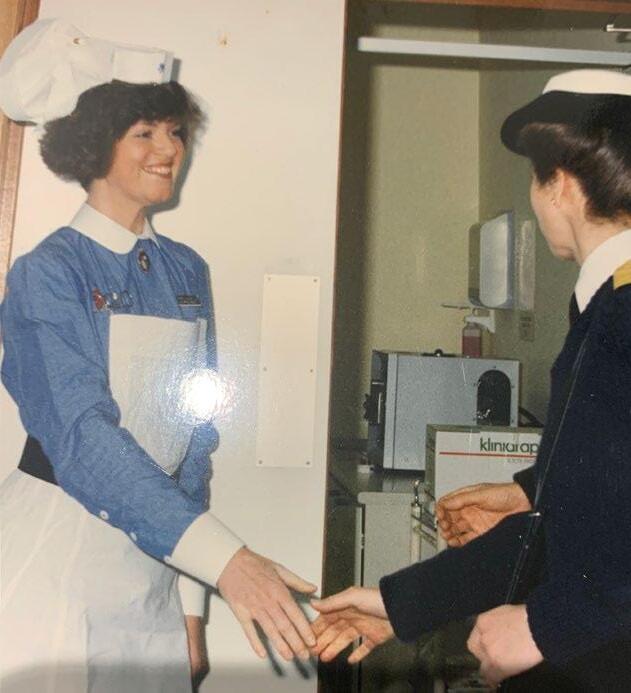
Health Visiting) course in Family Planning in 1993, a Leadership and Management course in 1994, and obtained my NEBOSH (National Examination Board in Occupational Safety and Health) Certificate in Health & Safety in 1996.
Yes, I would encourage anybody to go into nursing. It has broadened my outlook, given me self- confidence and enabled me to strike up a conversation with anyone I meet (which my husband and children find very amusing!). It has also made me more adaptable, more sociable and given me a broad sense of humour. I don’t think my life would have been anywhere near as exciting or given me as many opportunities if I hadn’t chosen a career in nursing. I wouldn’t have as many thought provoking and life affirming stories to tell and would never have met as many interesting people as I have. It has extended my comfort zones, and after all these years I still enjoy learning and developing in my role.
After qualifying, I was unsure where exactly I wanted to work, so I decided to join the NHS Nurse Bank. Bank nursing exposed me to a wide range of different working environments and areas of nursing, which not only gave me a lot of confidence but also lots of opportunities that I may not have got working in one area, allowing me to enhance my knowledge, nursing experiences and professional development more quickly and to a much greater extent than if I’d specialised straight away. It has also helped me subsequently within my occupational health career, where having diverse clinical knowledge is a key requirement.
Definitely working in occupational health, as this is what I have done for the majority of my nursing career. No two days are ever the same, there are never any dull moments, and it can be very rewarding at times when supporting people through challenging and uncertain periods in their life.
Within OH nursing, I would say it’s the lack of awareness and understanding of the purpose of occupational health, although being able to educate people on the value of having occupational health input is definitely an aspect of the job that I really love.
Kerry Hair Nurse Manager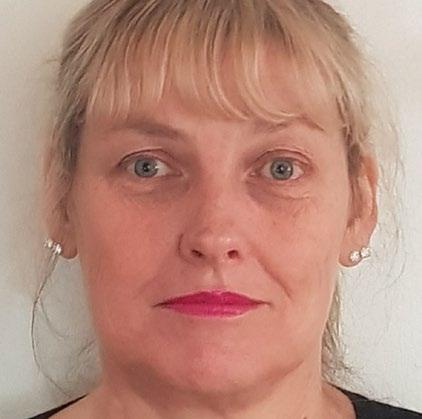
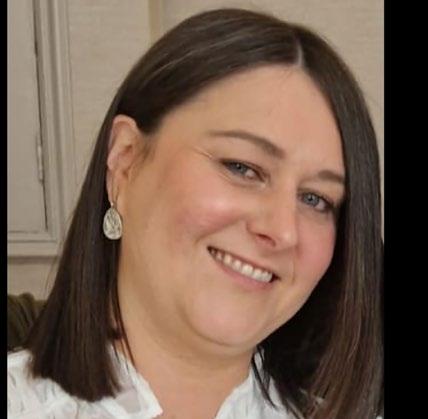
Humour, empathy, humour, an ability to think outside the box, humour, kindness, a desire to problem solve no matter what situation you are faced with, oh, and humour!
Occupational health nursing offers you raw insight into people’s lives. It teaches you never to judge an individual because you do not ever fully know the challenges that they may have gone through or the difficulties they may be navigating day to day.
Working as an OH Nurse has given me a deeper understanding that for some, the challenges that life brings will extend to every facet of life, both at work and at home, and has really helped me to realise that we are all 'deliciously different' and have our own ways of coping. It requires you, above everything, to be kind. The impression that you leave an individual with will colour their judgement of occupational health forever more, so it’s important always to try to leave the person with a positive perspective, even in the most challenging of situations.
Nursing is the most rewarding job, as no two days are ever the same. Of a day I will be dealing
with individuals experiencing emotional and work-related turmoil, and at night (in my other role as a palliative care nurse), I will be caring for someone as they take their last breath in the world. Nursing is a privilege and an honour. No other job allows you to enter people’s lives in quite in the same way. People always remember “The nurse who…”
As a General Nurse, my favourite post had to be my time as A&E Sister at King's College Hospital, London, as I never knew what was coming next! It was incredibly busy and fast-paced but also lots of fun and very rewarding, with no two days the same.
In terms of OH Nursing, my favourite role is here at Medigold Health, of course!
Yes, definitely! It is tough and requires a lot of dedication, but it is incredibly rewarding as a career.
I moved to OH Nursing in 1998, as I had experienced so much with General Nursing and wanted the next challenge.
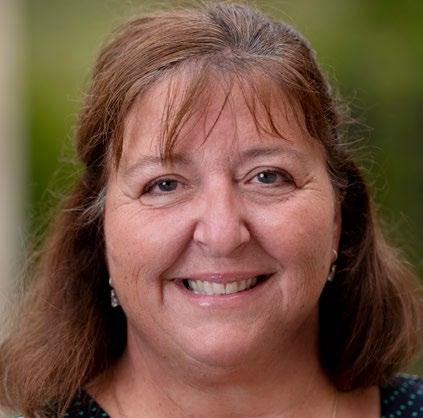
I spent many years working within in-house OH departments, including at the Met Police and the Daily Mail, and I made the shift to working for an OH provider in 2014 to broaden my skills and work across a variety of sectors and client bases.
I believe that my General Nursing experience plays a crucial role in my position today as it grounded me and enabled me to get a solid understanding of illnesses and their impact on an individual. Today, I am able to apply that knowledge in a commercial setting and explore the impact illness has not only on the individual, but also on their job role and their wider workplace.
I love proactively helping people to get and stay well at work.
For anyone entering nursing, I would recommend getting as much varied experience as possible. As it is such a diverse field, it is very hard to know what you like and love if you don’t try different areas.
I have had such a broad career in lots of different areas within nursing, but through trying things out I feel like I have finally found my niche in OH nursing.
I am so grateful for some of the opportunities I have had throughout my career. Some of them have been down to being in the right place at the right time, and some have come through sheer grit and determination and making the opportunities myself. When I started as a nurse, I would never have been able to imagine the experience I have been so lucky to have.
One thing that I have retained throughout all of my roles is my sense of humour; nursing is a serious business so it’s important to have fun!
This section is where we spotlight some of the key services that form part of your Medigold Health Protect package.
This month the focus is on your Annual Wellbeing Programme from Westfield Health.
On top of everything else that's included in your Protect package, you and your employees also get to enjoy free access to our online Annual Wellbeing Programme, developed in partnership with Westfield Health, one of the UK’s foremost wellbeing solutions providers.
This readymade health awareness programme is designed to get your employees engaging with their physical and mental health and to give them the tools they need to take a more proactive, preventative approach to their own wellbeing and make positive lifestyle changes.
Every month, we’ll provide you with unlimited access to a fresh new webinar on a different health or wellbeing topic, plus you’ll get an accompanying campaign toolkit packed full of promotional resources to help you communicate the topic to your teams!
All of this can be easily accessed via the portal, with the current theme also highlighted on your Events Calendar, so you know at a glance which health topic you’re promoting each month!
It couldn’t be easier - simply download the resources and email them out to your teams or display them across your workplace.
Fancy having a watch of this month’s health and wellbeing webinar right now? Simply click the link below!
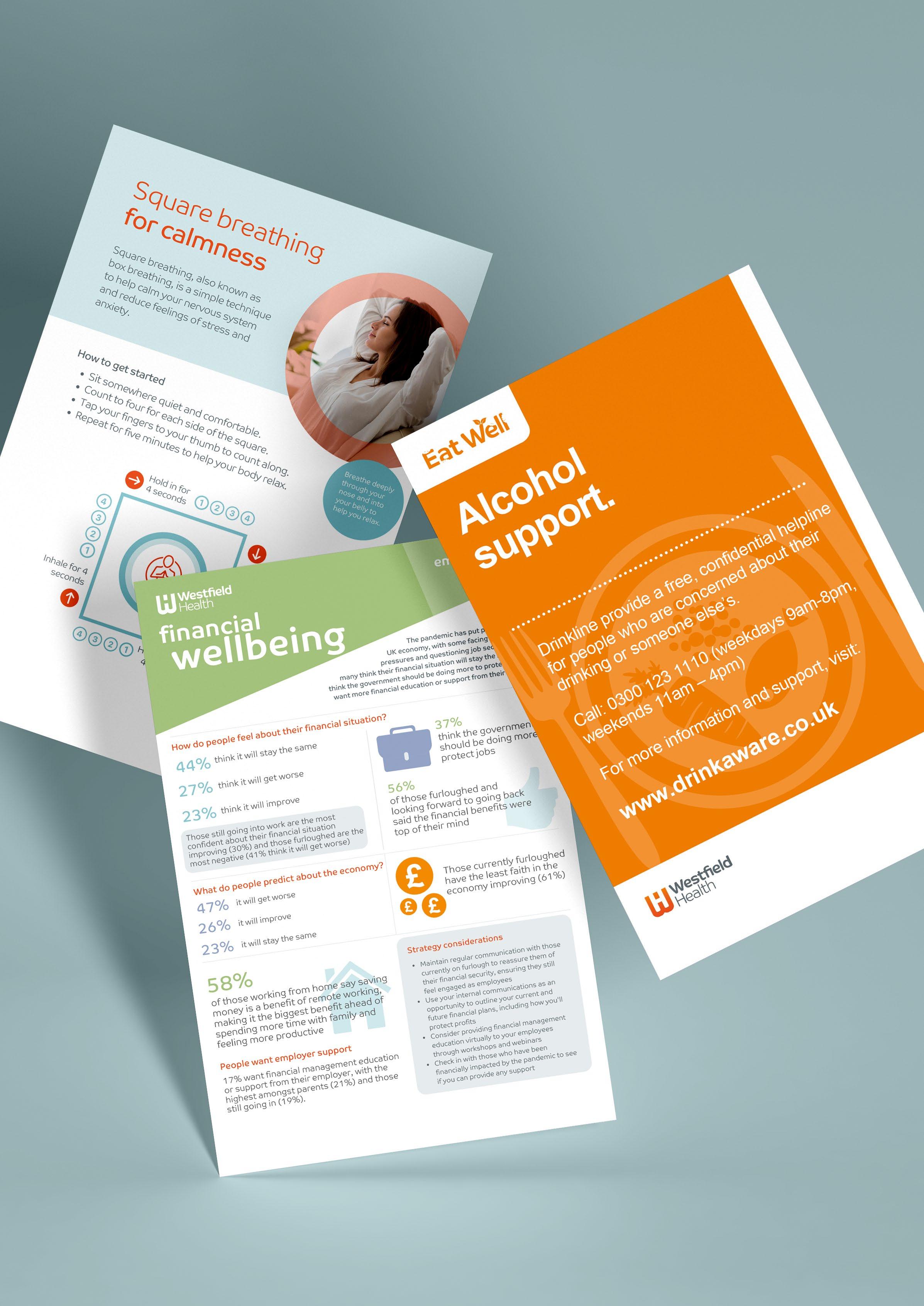

Four out of five people will experience back pain at least once in their lives, and it is one of the biggest causes of employee sickness absence, accounting for more than 12 million working days lost every year.
Despite what you may think, most back pain isn’t caused by spinal damage or health conditions, but by sprains, strains, posture problems and being out of good physical condition. These problems can often be caused by work, particularly if your role is very manual or involves working for extended periods in uncomfortable or static positions.
While employers have a responsibility to minimise the risk of you sustaining an injury at work, there are also things that you can do yourself to protect your back…
The levels of physical exertion required in many manual roles are often not dissimilar to those required in a gym session, and you wouldn’t begin a workout without warming up or stretching first. Especially if you’re going to be doing a lot of bending, twisting, crouching or heavy lifting, it’s important to remember to prepare your body first, to reduce your chance of injury.
Whether you’re sat at a desk, driving or doing a more manual role, staying in one position for hours on end or performing repetitive movements all day without a rest can soon start to cause pain and discomfort. Taking regular breaks to stretch out and change your posture is therefore key. Try setting a timer to remind you to get up and move around, and make sure you switch up the tasks you do throughout the day.
Regular physical activity is essential for maintaining musculoskeletal health, helping to strengthen our muscles, improve flexibility and keep our joints in good condition. Try to aim for around 30 minutes per day (this can be spread across the week) and include a mix of aerobic exercise (such as walking or swimming), strength training (using weights or bodyweight), and activities designed to improve your flexibility (such as yoga or gentle stretching). Exercises targeted at strengthening your core (such as Pilates) are particularly good for helping to alleviate and prevent back pain.
Whatever you choose to do, remember to listen to your body, exercise at the right pace and intensity for you and don’t overdo it – resting is important too.
To find out more about the ergonomic services that Medigold Health offer, including Workstation Assessments and Physiotherapy, click here .
Here are our top tips for keeping your back in tip-top condition:

We hope you enjoyed this issue of The Medigold Memo and that you’ll look forward to the next one! In the meantime, you can stay in the loop with what’s happening across the Medigold Health Group via our social channels.

Interested in learning more about what we can do for your business? Get in touch!


